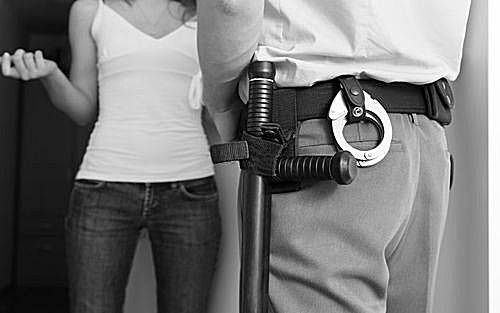I imagine that on many college campuses across the great state of North Dakota, there are heated debates regarding what your rights are if you are at a party that gets busted. In fact, I knew a lot of kind-hearted folks that liked to enjoy the company of forty of their closest friends while indulging in copious amounts of alcohol. I’m not saying I condone that behavior, but I know it happens. I also have a friend, whom I will refer to as Roberto H. Money, who liked to go to these social gatherings. Unfortunately, he went to two gatherings where the Jamestown Police Department showed up. Mr. Money wasn’t 21 years old. As a result of being slow on his feet, and not knowing his rights, Mr. Money had to spend three weekends in jail after his second Minor in Consumption. You don’t want to be like him. You want to know your rights.
You shouldn’t drink if you are under 21 years old. I’m not telling you to drink and evade law enforcement. But, if you don’t listen to me, it is important that you understand your rights. Namely, what I will be discussing are your rights when law enforcement comes to your house or apartment after your neighbor calls you in for making too much d@#! noise!
Under both the North Dakota and the United States Constitutions, you have a right to be free from warrantless searches and seizures inside your home. In fact, warrantless searches and seizures inside a home are presumed to be unreasonable. Based on this, in order for the police to then enter your home, your fraternity or sorority, or your apartment without a warrant, an exception to the warrant requirement must apply. As it pertains to this issue, the two main exceptions to the warrant requirement are 1) consent; and 2) exigent circumstances.
First, under the consent exception to the warrant requirement, police can enter your “home” if you tell them they can enter. You need to be aware that your consent has to be voluntary. For instance, if a police officer tells you it’s a crime if you don’t let him in without a warrant, you likely wouldn’t be voluntarily consenting to law enforcement entering your home. But if you say, “Sure, come on in!” you are essentially waiving your right to be free from a search and potential seizure in your home.
Second, the exigent circumstances exception is defined as “an emergency situation requiring swift action to prevent imminent danger to life or serious damage to property, to forestall the imminent escape of a suspect or destruction of evidence.” See City of Fargo v. Lee, 1998 ND 126, ¶ 10, 580 N.W.2d 580. It is the government’s burden to show, after the fact, that exigent circumstances existed in order for law enforcement to come into your residence without a warrant. Many people believe, and prosecutors have argued, that exigent circumstances exist when officers see a crime being committed in their presence, such as minors drinking or possessing alcohol. However, both the U.S. Supreme Court and the North Dakota Supreme Court have found that the presence of relatively minor infractions, e.g. a Class B Misdemeanor Minor in Consumption or Possession, does not by itself justify entry into a home without a warrant.
So, while the law is much more complex, the short answer to “do I have to let law enforcement into my home if they don’t have a warrant and I am throwing a house party?” is no. However, this doesn’t necessarily negate your liability. An officer can still arrest you for a Minor in Possession or Consumption if, for instance, you are standing in a public doorway at the residence. If you open the door, cross the invisible line from the home to a public place (such as a patio), and are committing an offense in the officer’s presence, you should expect to be arrested for that crime. See City of Fargo v. Steffan, 2002 ND 26, ¶ 13, 639 N.W.2d 482. But, if the door is opened and you tell law enforcement they cannot enter, law enforcement cannot legally cross that invisible line to enter your home to make an arrest, either. See City of Jamestown v. Dardis, 2000 ND 186, ¶ 7, 618 N.W.2d 495. Also, you need to be aware that the homeowner, or someone who has the power to determine who enters the home, can allow law enforcement in. So, if you don’t give them consent, but someone else does, you still can be charged and found guilty.
In short, the law in this area is complex. There are additional exceptions to the warrant requirement that may apply in your case, but these are the two most common that are raised in these scenarios. But, you do have rights in your home and don’t need to let law enforcement in whenever they come knocking. Based on these rights, law enforcement cannot simply enter your home without a warrant, unless you give them permission or there are “exigent circumstances.”
If you have a criminal issue, please do not hesitate to call our Criminal Defense Team at 701-297-2890.
This blog is general information regarding this issue and is not intended to be an in-depth review of this rather complex legal issue.










